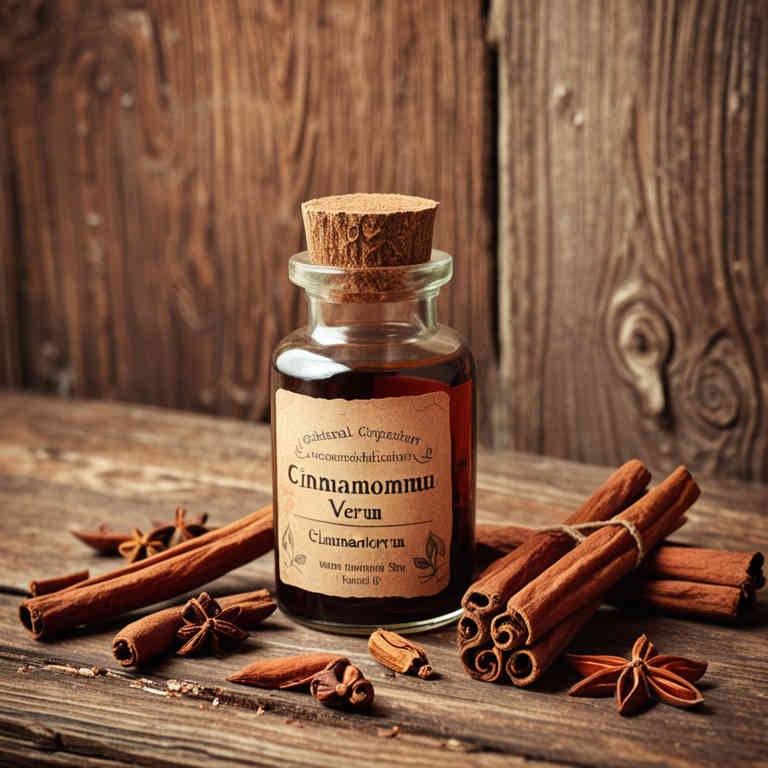Cinnamomum verum tincture for medicinal use

Cinnamomum verum tincture is a concentrated herbal preparation made by soaking the bark of the cinnamon tree in alcohol to extract its active compounds.
It is commonly used in herbalism for its warming properties and ability to support digestive health. This tincture is often taken internally to help alleviate symptoms of indigestion, nausea, and bloating. It may also be applied externally to soothe muscle aches and improve circulation.
In traditional medicine, it is valued for its aromatic and antimicrobial benefits.
Uses
Cinnamomum verum tincture has been used to treat various ailments across different cultures for centuries.
Historically, it was valued in traditional Chinese medicine for its warming properties and ability to improve circulation. In Ayurvedic practices, it was used to aid digestion and alleviate respiratory conditions. Modern applications include its use as a natural remedy for colds, flu, and muscle pain, supported by its antimicrobial and anti-inflammatory properties.
Today, it is also popular in aromatherapy and as a flavoring agent in food and beverages.
Benefits
Cinnamomum verum tincture has health benefits such as improving circulation, reducing inflammation, and supporting digestive health.
It contains bioactive compounds like cinnamaldehyde and polyphenols that contribute to its therapeutic properties. This tincture may help in managing blood sugar levels and enhancing metabolic function. It is also known for its antimicrobial and antioxidant effects, which can support immune health.
Regular use of Cinnamomum verum tincture may promote overall wellness when used as part of a balanced health regimen.
Constituents
Cinnamomum verum tincture active constituents include cinnamaldehyde, cinnamic acid, and essential oils such as eugenol and linalool.
These compounds contribute to the tincture's antimicrobial, anti-inflammatory, and antioxidant properties. Cinnamaldehyde is primarily responsible for the characteristic flavor and many of the therapeutic effects. The essential oils help in supporting digestive health and may aid in reducing symptoms of bloating and indigestion.
This herbal preparation is often used to promote overall wellness and support immune function.
Preparation
To make Cinnamomum verum tincture, first gather 100 grams of high-quality cinnamon bark and 500 ml of a high-proof alcohol such as vodka or grain alcohol.
Place the cinnamon bark in a clean glass jar and pour the alcohol over it, ensuring the bark is fully submerged. Seal the jar and store it in a dark, cool place, shaking it gently every few days for four to six weeks. After the steeping period, strain the liquid through a fine mesh strainer or cheesecloth to remove the bark, then transfer the tincture to dark glass bottles for storage.
This preparation can be used topically or internally as a remedy for digestive issues, inflammation, and cold symptoms, though it should be used with caution and under professional guidance.
Side Effects
Cinnamomum verum tincture may lead to gastrointestinal discomfort, including nausea, vomiting, and diarrhea, especially when taken in high doses.
It can also cause allergic reactions in individuals sensitive to cinnamon, manifesting as skin rashes, itching, or respiratory symptoms. Long-term use may increase the risk of liver damage due to its high concentration of essential oils. In some cases, it may interact with medications, particularly blood thinners, increasing the risk of bleeding.
It is important to consult a healthcare professional before using this tincture, especially for prolonged periods or in combination with other treatments.